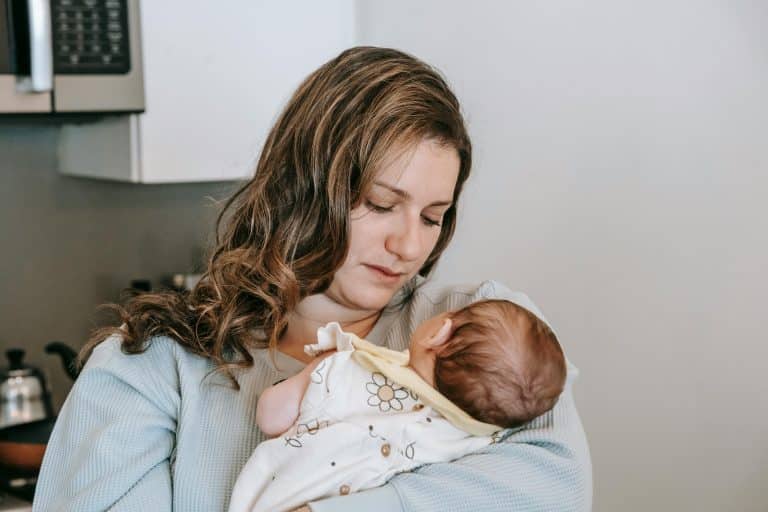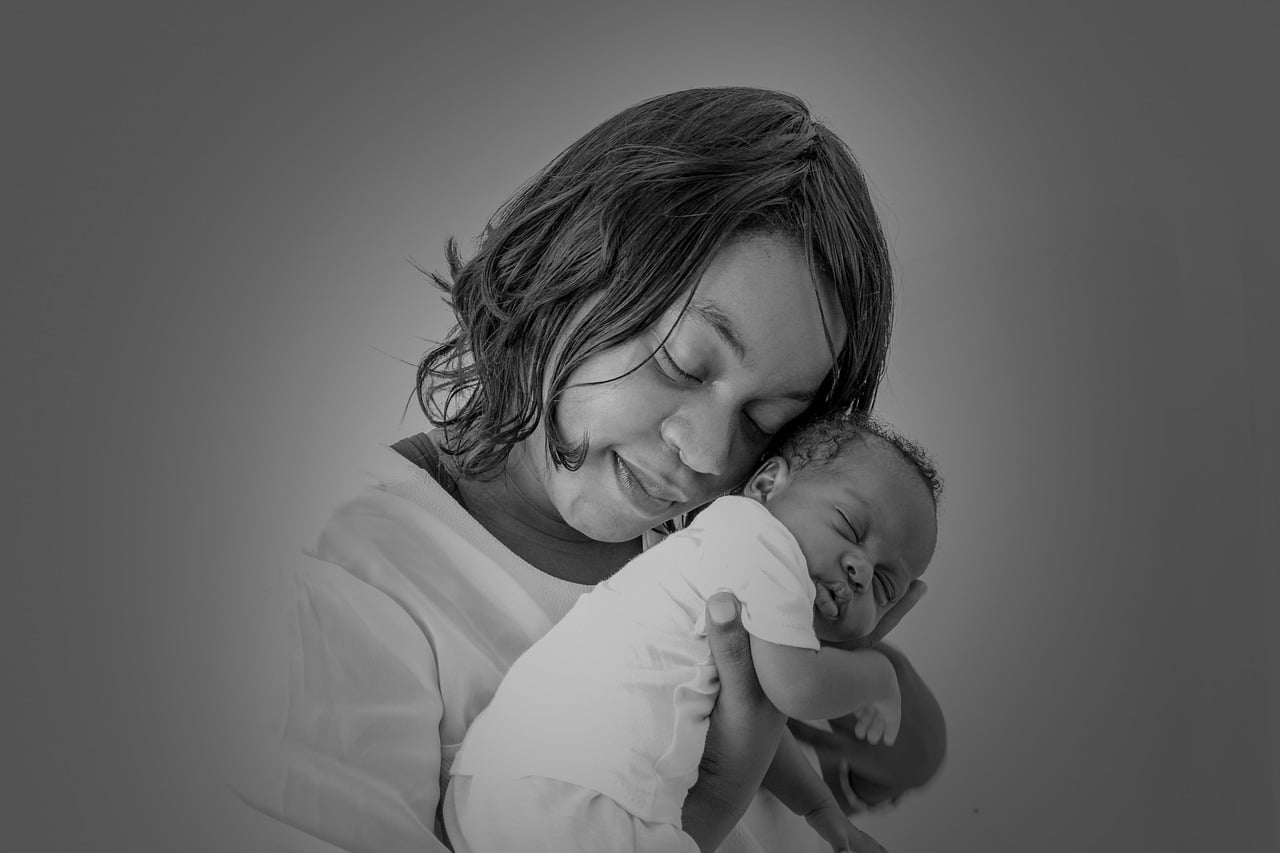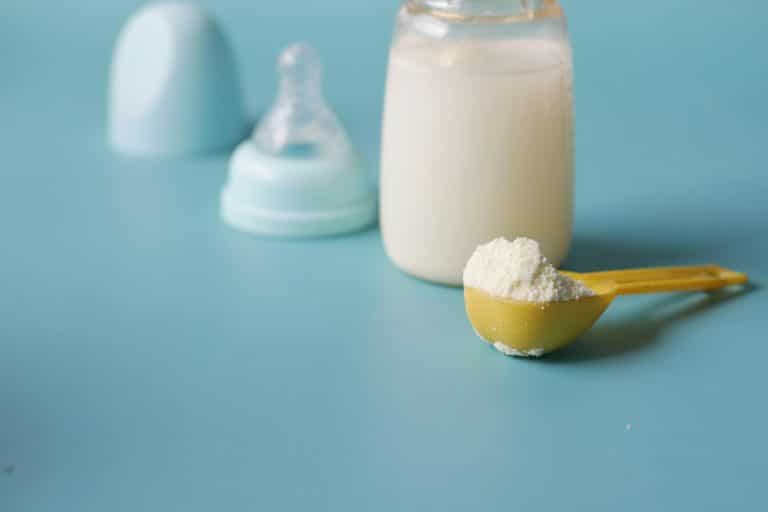Having a new baby is an important milestone for most moms and a time to celebrate after 40 weeks of waiting. While it’s a time to enjoy having a little one in your life, the first few weeks can be overwhelming.
Motherhood can unveil countless emotions, especially if you’re a new mom and one common feeling is postpartum anxiety. As a new mom, you’ll find yourself battling countless anxiety symptoms ranging from worry, restlessness, and irritability to deprived sleep.
While worrying is a common emotion after delivery, postpartum anxiety can become more severe as time passes. As a result, it can affect your ability to care for your baby and yourself.
The bright side is that there are several ways to address postpartum anxiety. This includes practicing self-care, having a strong support system, getting adequate rest, and using natural remedies such as cannabidiol (CBD). You can also utilize various therapeutic remedies and medications.
What is Postpartum Anxiety?
Postpartum anxiety (PPA) is a condition experienced by a postpartum mom where one can feel exaggerated alertness, fear, and worry. Unlike the normal feeling of worry and alertness experienced after the arrival of a baby, postpartum anxiety can have severe symptoms and affect your daily functioning.
It can also make you hypervigilant since you may be having thoughts that something bad is going to happen to your bundle of joy.
Symptoms of Postpartum Anxiety

Postpartum anxiety manifests in a blend of emotional, physical, and behavioral symptoms. Sometimes these symptoms overlap with those of postpartum depression (PPD), making it easy to confuse the conditions. Here are the most common symptoms of postpartum anxiety:
- Trouble concentrating: It can become difficult to focus or remember things, leading to poor decision-making.
- Racing thoughts: Your mind quickly digs up worrying thoughts, mostly focusing on worst-case scenarios.
- Irritability and persistent edginess: You may experience agitation, frustration, and restlessness. Furthermore, you may feel on edge most of the time, fearing impending doom.
- Constant and obsessive fear: Having exaggerated worry and fear that something bad will happen to you or the baby. You may be asking yourself questions like, “what if I sleep and I find my baby not breathing?” or “is my baby sleeping in the right position?”
- Avoidance: You avoid some activities and people, wanting to be close to your baby.
- Need for safety: You’re always checking the environment to ensure it’s safe for the baby.
- A constant need to take care of your baby: You fear leaving your baby with other people, fearing for their safety.
- Heart palpitations: You may experience an increased heart rate that makes you feel restless.
- Difficulty sleeping: You find it difficult to fall asleep despite feeling exhausted and sleepy.
- Fatigue: Feeling tired and lacking energy all the time.
It’s crucial to understand your symptoms to enable effective management and treatment.
Causes of Postpartum Anxiety
Some known causes of anxiety during postpartum recovery include:
- Hormonal changes: After delivery, a new mom experiences drastic changes in her hormones, notably estrogen and progesterone levels. These changes cause fluctuations in moods, leading to anxiety.
- Lack of sleep: Caring for a newborn can be overwhelming since they need your attention most of the time, meaning you’ll disrupt your normal sleeping pattern.
- History of anxiety or depression: If you or your family have a history of anxiety or depression, you are highly susceptible to experiencing postpartum anxiety.
- Stress: Adjusting to a new baby, changes in your schedule, and added responsibilities can be stressful for a new mom.
Ways to Prevent, Manage, and Treat Postpartum Anxiety
If you don’t manage postpartum anxiety, you may end up with postpartum depression, which is more aggressive. In a worst-case scenario, you may end up with a lifelong mental illness, making it crucial to seek early advice from a healthcare professional.
The good news is that you can prevent PPA, especially if you know you’re at a high risk of experiencing it. If you already have PPA, there are several ways to manage and treat it.
Tips for Preventing Postpartum Anxiety
- Bond with your little one. Cuddling and breastfeeding are excellent ways to achieve this.
- Have enough rest: Take a break from work and household chores. You can take a power nap when the baby sleeps. If sleeping for them is a big deal, you can look for ways to get your baby to sleep, because if they are not asleep, so are you.
- Prioritize self-care after childbirth: As a mom, you can forget about taking care of yourself because you want to concentrate on your baby. Remember, taking care of yourself means you’ll give your newborn excellent baby care.
- Have a strong support system of family, friends, and mom groups. Don’t be shy about asking your family and friends to help with the baby and other chores. Also, spending time and sharing with other moms can help alleviate some stress.
- Seek therapy or counseling during pregnancy if you have a history of anxiety or depression.
- Know that every postpartum recovery is different so don’t compare your baby or your healing, especially if it’s a cesarean section (CS), with that of others.
- Ensure you have a healthy diet: Good nutrition can boost your mental health.
Tips for Managing Postpartum Anxiety
- Use cannabidiol (CBD): CBD has been gaining traction for its therapeutic remedies during postpartum recovery. It can help alleviate postpartum anxiety symptoms and other mental disorders during the postnatal period. It’s good to note that little research has been done regarding the safety of CBD on a breastfeeding baby.
- Social support: Having people who surround you understand what you’re going through can help you manage PPA. Don’t refuse their offers to help so you can have a break.
- Lifestyle changes: Making some changes, such as engaging in physical activities such as exercises, having adequate sleep, and maintaining a balanced diet, are crucial when managing PPA.
- Cognitive-behavioral therapy (CBT): CBT (psychotherapy) is effective for managing PPA. This therapy can help you identify and address negative thought patterns, teaching you to react differently to the triggers of your anxiety.
- Mindfulness and relaxation techniques: Techniques such as meditation, deep breathing, yoga, visualization, and aromatherapy can help you relax and observe your anxiety.
- Medications: Your healthcare provider may prescribe certain medications such as antidepressants, for severe cases of postpartum anxiety. Ensure you explain the severity of your symptoms so that your provider can determine the best course of treatment.
Final Thoughts
Natural worry about what can happen to your newborn is common for many new mothers. However, if these thoughts become persistent and are accompanied by excessive fear, heart palpitations, irritability, restlessness, and loss of appetite; that is not normal. You may have postpartum anxiety, and the best approach is to seek the advice of a healthcare provider.
You can prevent postpartum anxiety by prioritizing self-care and rest, having a support system, eating a healthy diet, and bonding with your baby.
Furthermore, mindfulness and relaxation techniques, exercises, cognitive-behavioral therapy (CBT), and medication can help manage postpartum anxiety.










